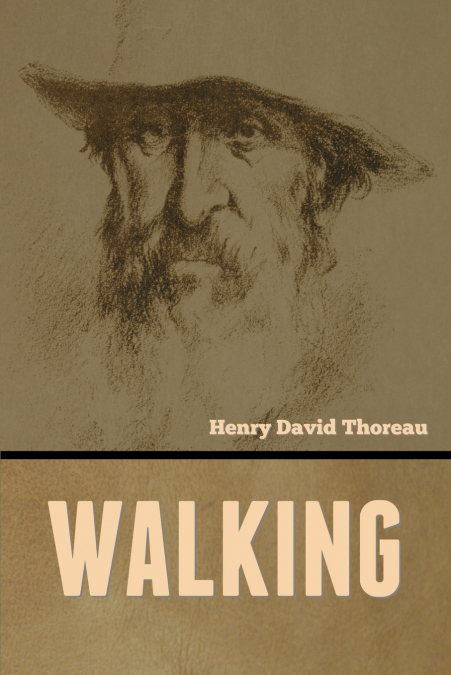
Henry David Thoreau
Walking, or sometimes referred to as 'The Wild', is a lecture by Henry David Thoreau first delivered at the Concord Lyceum on April 23, 1851. It was written between 1851 and 1860, but parts were extracted from his earlier journals. Thoreau read the piece a total of ten times, more than any other of his lectures. 'Walking' was first published as an essay in the Atlantic Monthly after his death in 1862.'Walking' is a transcendental essay that analyzes the relationship between man and nature, trying to find a balance between society and our raw animal nature. 'Walking' has autobiographical side of Henry David Thoreau as well, and reflects the author’s personal experiences. As Rebecca Solnit has stated in 'Wanderlust: A History of Walking', the rhythm of walking could be the sources of music, conversation, thoughts, and literature. In over ten years of walking, Thoreau kept observing nature, organizing his thought, and considering the best way to express his lecture; his diary shows what elements in his daily life influenced his environmental view and motivated him to write it. Above all, the author’s correspondence with friends provides not only his lecture career but also his works and his writing process. As a result, his essay is told by the voice of the confident narrator, given some authority. Moreover, using allusion, he succeeded in not only understanding the essay broader but also obtaining a form of poetry, and with his lecture and the new writing style, 'Walking' became a new critique of the existing society. (wikipedia.org)About the author:Henry David Thoreau (see name pronunciation; July 12, 1817 - May 6, 1862) was an American essayist, poet, and philosopher. A leading transcendentalist, he is best known for his book Walden, a reflection upon simple living in natural surroundings, and his essay 'Civil Disobedience' (originally published as 'Resistance to Civil Government'), an argument for disobedience to an unjust state.Thoreau’s books, articles, essays, journals, and poetry amount to more than 20 volumes. Among his lasting contributions are his writings on natural history and philosophy, in which he anticipated the methods and findings of ecology and environmental history, two sources of modern-day environmentalism. His literary style interweaves close observation of nature, personal experience, pointed rhetoric, symbolic meanings, and historical lore, while displaying a poetic sensibility, philosophical austerity, and attention to practical detail. He was also deeply interested in the idea of survival in the face of hostile elements, historical change, and natural decay; at the same time he advocated abandoning waste and illusion in order to discover life’s true essential needs.He was a lifelong abolitionist, delivering lectures that attacked the Fugitive Slave Law while praising the writings of Wendell Phillips and defending the abolitionist John Brown. Thoreau’s philosophy of civil disobedience later influenced the political thoughts and actions of such notable figures as Leo Tolstoy, Mahatma Gandhi, and Martin Luther King Jr.Thoreau is sometimes referred to as an anarchist. Though 'Civil Disobedience' seems to call for improving rather than abolishing government-'I ask for, not at once no government, but at once a better government'-the direction of this improvement contrarily points toward anarchism: '’That government is best which governs not at all;’ and when men are prepared for it, that will be the kind of government which they will have.' (wikipedia.org)